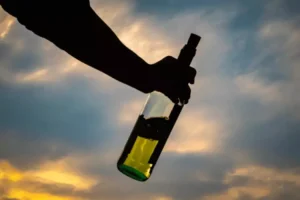10 ways to control high blood pressure without medication
Posted on |

However, this alcohol lowers blood pressure effect is usually temporary and can be followed by a rebound increase in blood pressure once the body metabolizes the alcohol. We included one trial (PATHS 1998), where trial participants were randomised to either a cognitive‐behavioural intervention to reduce alcohol intake or no intervention. It’s long been touted as “good for heart health,” but newer research suggests its benefits aren’t as great as we thought. In fact, several studies have shown that drinking red wine regularly raises blood pressure, according to an April 2023 review in Nutrients1. You might think that a regular glass of red wine or other alcoholic beverages might be good for your heart.

The Role of Lifestyle Factors
- Researchers found this group had a reduced risk of hypertension after drinking 30 grams, about 2 tablespoons, of a specific form of aged white wine every day for 3 weeks.
- It can cause blood vessels to dilate, which may lead to a temporary decrease in blood pressure.
- DBP was not significantly affected up to 12 hours after drinking a high dose of alcohol, but there was a statistically significant increase in DBP during the ≥ 13 hour time interval after alcohol consumption.
- Beets are rich in dietary nitrates, a compound known to have blood pressure-lowering effects.
For the UK, we modelled the effect of a reduction of alcoholconsumption for 50% of the population drinking more than two standard drinksper day (ie, 12 g pure alcohol per drink). No differences were found either for overall mortality, cardiovascular mortality or cardiovascular events. No data on serious adverse events or quality of life were available to assess. Adequate randomised controlled trials are needed to provide additional evidence on this specific question. The magnitude and direction of the effects of alcohol on blood pressure depend on the time after alcohol consumption.
Naissides 2006a published data only
- The reason for exclusion was documented for each citation at the full‐text level.
- “It appears that heavy alcohol use can affect blood pressure for 12 to 24 hours; then persistent heavy alcohol use can also lead to sustained elevations in BP,” says Dr. Desai.
- Be honest about your current drinking habits so they can actually help you.
- Home blood pressure monitors are available widely and without a prescription.
Kawano 2000 reported a reduction in plasma potassium levels after alcohol consumption, which might provide another reason for the increase in heart rate. There is likely a dose‐response effect of alcohol on BP, as the effects of alcohol appeared to last longer with higher doses. We intended to find out the dose‐dependent changes in SBP, DBP, mean arterial pressure (MAP), and HR after consumption of a single dose of alcohol.

The effect of a reduction in alcohol consumption on blood pressure: a
When trials compared more than one dose of alcohol, we handled each comparison separately. Because all of our outcomes of interest provided continuous data, we used the inverse variance approach and a fixed‐effect model to combine effect sizes across studies. There is an urgent need for adequate long‐term randomised controlled trials comparing the impact of alcohol intake reduction strategies on blood pressure and clinically relevant outcomes. Participants were randomly assigned to a cognitive‐behavioural alcohol reduction intervention programme or a control observation group.
Conen 2008 published data only

Alcohol use can raise blood pressure, trigger heart rhythm problems, and lead to conditions like alcoholic cardiomyopathy. Many interrelated changes are possibly responsible for the biphasic effect of alcohol on blood pressure. As planned, we conducted sensitivity analyses to see if there was any significant difference between effect estimates of outcomes given by the fixed‐effect model and the random‐effects model, when substantial heterogeneity was present. Halfway house The result is presented in Table 6; there was no significant difference between results given by the two models.
Conclusion – Why Does Blood Pressure Drop After Drinking Alcohol?
Most of the hypertensive participants in the included studies were Japanese, so it is unclear if the difference in blood pressure between alcohol and placebo groups was due to the presence of genetic variants or the presence of hypertension. Large RCTs including both hypertensive and normotensive participants with various ethnic backgrounds are required to understand the effects of alcohol on blood pressure and heart rate based on ethnicity and the presence of hypertension. More RCTs are needed to study the effects of low‐dose alcohol to better delineate the dose‐response effects of alcohol on BP and heart rate. RCTs with measurements more than 24 hours after alcohol consumption are needed to see how long the effect of high‐dose acute alcohol consumption lasts.
Table 2:
Because the alcohol content in one standard drink varies among different countries (ranging from 8 g to 14 g), we chose the Canadian standard for an alcoholic beverage, which is 14 g of pure alcohol (CCSA). Accordingly, we considered up to 14 g of alcohol as a low dose of alcohol. Thus, in our review, we used up to 30 g alcohol intake for men and up to 20 g alcohol intake for women as a moderate dose, and above this limit as a high dose.
The behavioural nature of the alcohol intervention necessitated an unmasked study design for the participant and the interventionist in the PATHS 1998 study. Furthermore, participants randomised to the control group were scheduled for data collection visits only. Therefore, despite the efforts to maintain blindness to blood pressure and laboratory data among participants and interventionists, this trial was assessed as having high risk of performance bias. A study published in the Lancet evaluated the effect of lowering alcohol consumption on the reduction of blood pressure. The team of scientists reviewed 36 trials with 2865 participants and published interesting findings. Stopping alcohol can lead to a significant reduction in blood pressure levels.

Benzo Detox and Withdrawal Symptoms & Treatment Methods

The authors of a 2020 research review examined the short-term effects of alcohol on healthy people over 18 years old within 6 hours of consumption. Another study, this time in the Journal of the American Heart Association, indicates that binge drinking increases blood pressure levels in men but not women. Despite this finding, women should try not to engage in binge drinking. The effect is more pronounced with binge drinking, which places sudden stress on the cardiovascular system and can cause significant fluctuations in blood pressure. Over time, repeated episodes of elevated blood pressure from alcohol use can contribute to long-term hypertension and increase the risk of serious heart problems. Methodological differences between studies might have affected measurement of the reported outcomes.